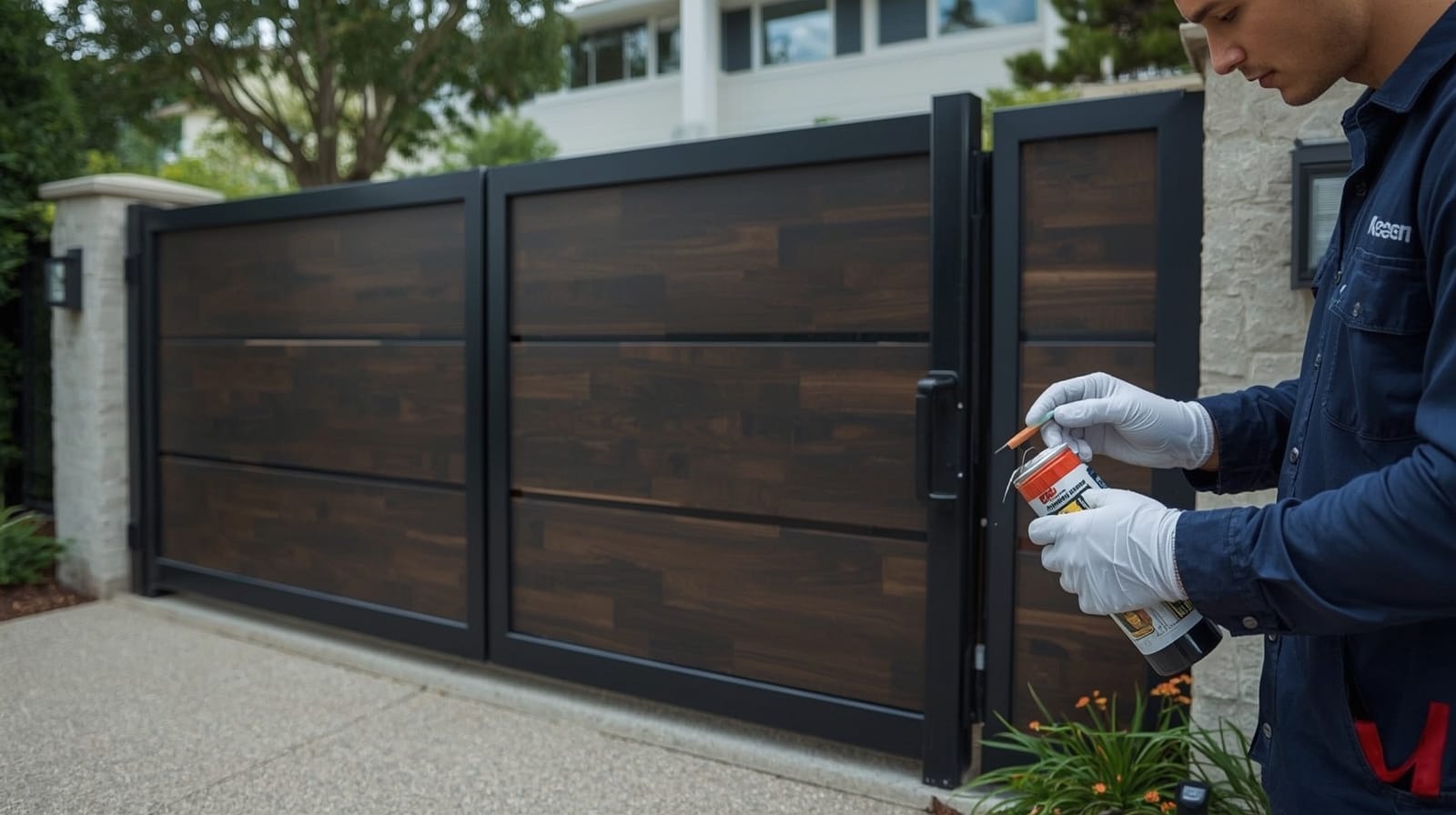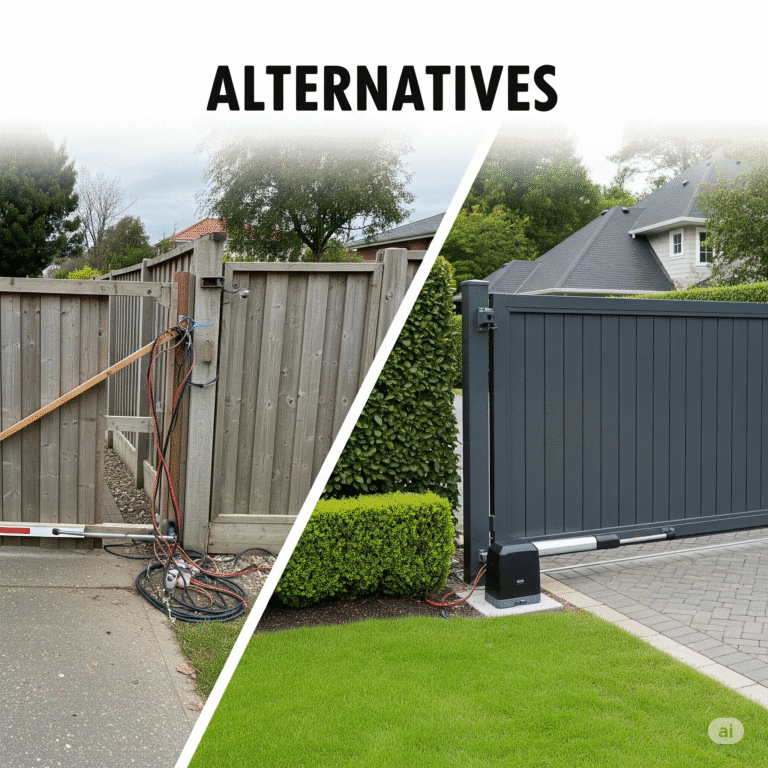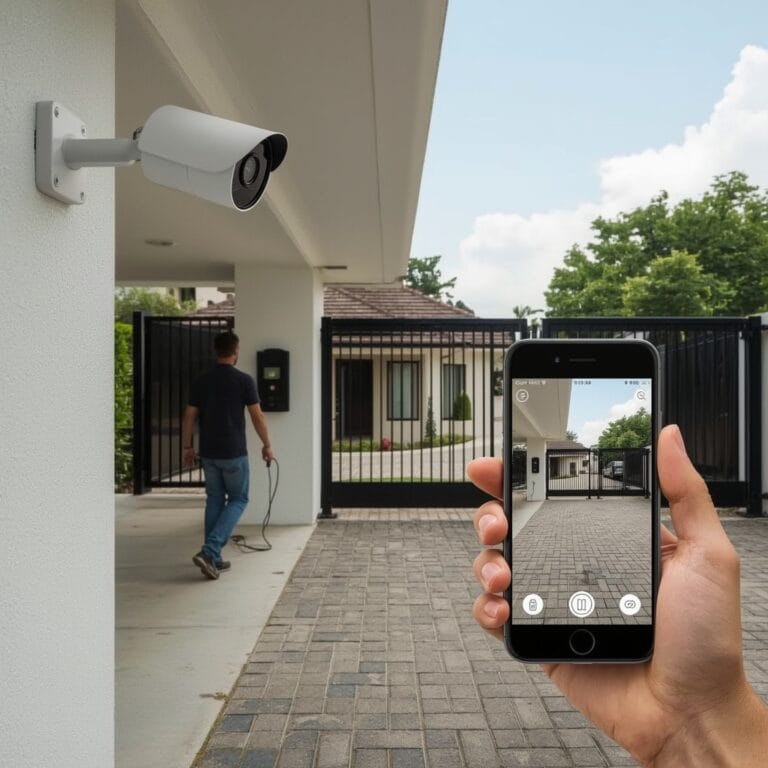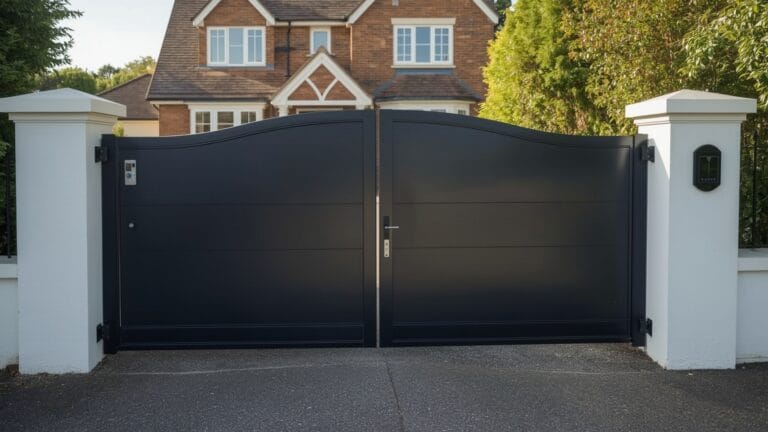The Essential 2025 Electric Gate Maintenance Guide: Maximising Your Automatic Driveway Gate’s Lifespan
Your electric gate is a significant investment in your home’s security, convenience, and kerb appeal. Like any sophisticated piece of machinery, it requires regular care to ensure it operates safely, reliably, and efficiently for years to come. Neglecting proper professional gate automation maintenance can lead to costly repairs, premature wear, and, most importantly, potential safety hazards.
Comprehensive Gate Automation Maintenance Guide by Professionals
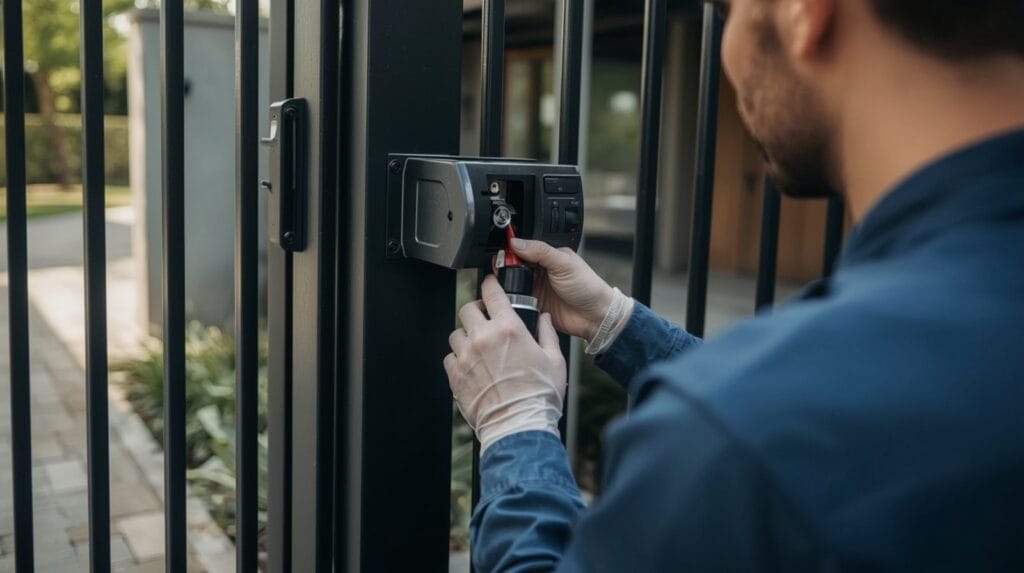
At UK Electric Gate Experts, we believe in empowering homeowners with the knowledge to protect their investment. This comprehensive electric gate maintenance guide will walk you through essential checks you can perform and highlight why professional servicing is crucial for maximising your gate’s lifespan. Consider this your definitive automatic driveway gate maintenance guide for proactive care in 2025.
Why is Electric Gate Maintenance So Important for Your UK Property?
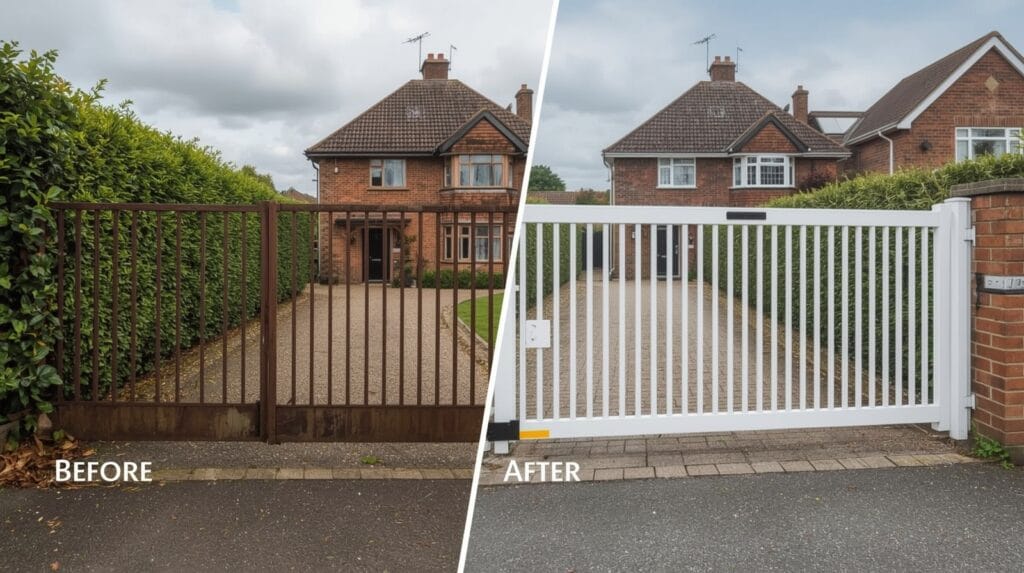
Regular electric gate maintenance is non-negotiable for several key reasons: It’s not merely an optional add-on, but a fundamental commitment required to ensure the long-term safety, optimal performance, and overall reliability of your automated entrance. Neglecting this crucial aspect of gate automation maintenance can quickly lead to unforeseen mechanical failures, costly emergency repairs, and, most critically, a compromise in the very security and safety measures your electric gate was installed to provide. Investing time and effort into consistent care now prevents significant headaches and expenses down the line, safeguarding both your property and its users.
- Ensured Safety: Automated gates have powerful motors and heavy moving parts. Regular checks ensure all electric gate safety features like photocells and force limitation are functioning correctly, preventing accidents and injuries. This is paramount for compliance with UK gate safety regulations and is a core component of any gate automation maintenance guide.
- Extended Lifespan: Proper lubrication, cleaning, and timely adjustments prevent wear and tear on components, significantly extending the life of your gate motor, hinges, tracks, and control systems. This proactive approach helps secure your investment for the long term.
- Reliable Operation: A well-maintained gate is a reliable gate. It reduces the likelihood of unexpected breakdowns, ensuring your gate opens and closes smoothly every time you need it, avoiding frustrating inconveniences.
- Preserved Security: A malfunctioning or unreliable gate can compromise your property’s security, leaving your home vulnerable. Regular automatic driveway gate maintenance ensures your gate remains a strong deterrent and effective physical barrier against unauthorised access.
- Cost Savings: Addressing minor issues early through routine gate automation maintenance is far more cost-effective than waiting for a major breakdown that requires expensive emergency repairs or even full system replacement. Proactive care truly saves money.
- Warranty Compliance: Many manufacturer warranties for electric gate components explicitly require regular professional servicing to remain valid. Neglecting this could leave you without cover if a part fails.
Your DIY Automatic Driveway Gate Maintenance Guide: Simple Steps You Can Take
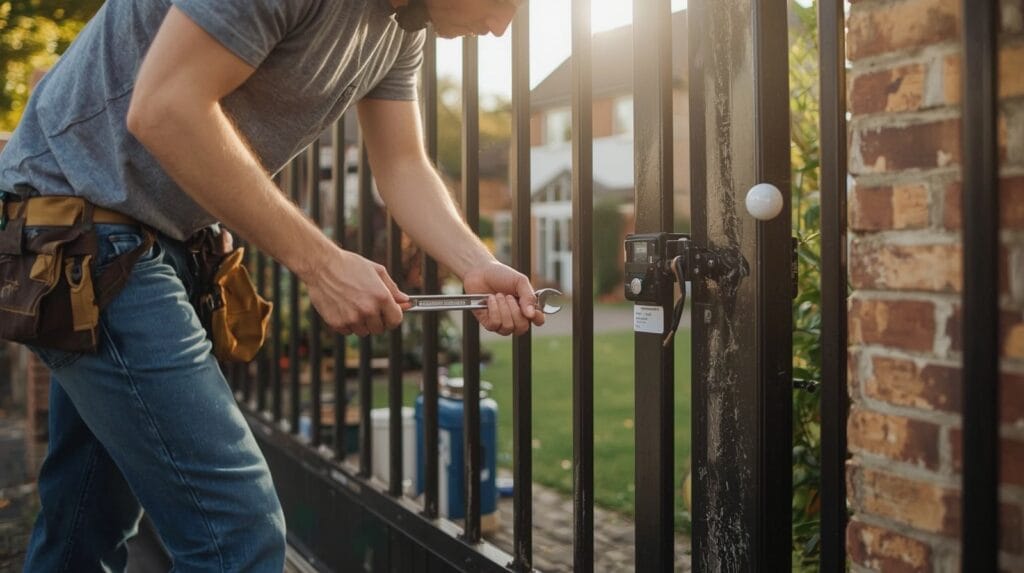
While professional servicing is undeniably vital for the intricate mechanics and safety compliance of your automated gate, there are several simple, yet effective, DIY electric gate checks you, as a homeowner, can perform regularly. These routine inspections are crucial for keeping your gate in excellent shape between those essential professional visits. By consistently implementing the advice within this basic electric gate maintenance guide for owners, you actively contribute to the longevity, smooth performance, and ongoing safety of your entire gate automation system. These proactive steps can prevent minor issues from escalating, ultimately making a significant difference to the overall health and reliability of your automated entrance.
- 1. Keep it Clean:
- Gate Surface: Regularly clean the gate panels or bars to remove dirt, dust, bird droppings, and leaves, especially if it’s a metal or wooden gate. Use a mild detergent and water, avoiding harsh chemicals that could damage finishes.
- Tracks for Sliding Gates: Sweep or vacuum the gate track frequently to remove stones, leaves, dirt, and other debris that can obstruct the gate’s movement and damage rollers. This simple step is critical for smooth gate automation maintenance.
- Motor Housing: Keep the motor casing clean and ensure any vents are free from dust or cobwebs to prevent overheating, which can shorten the motor’s lifespan.
- 2. Lubricate Moving Parts:
- Hinges and Pivots Swing Gates: Apply a suitable, non-corrosive lubricant like silicone spray or lithium grease to hinges and pivot points every 3-6 months. This reduces friction and wear.
- Rollers and Wheels Sliding Gates: Lubricate rollers and wheels, ensuring they move freely along the track. This is a key part of automatic driveway gate maintenance.
- Chains/Racks: If your gate uses a chain drive or gear rack, ensure it’s clean and lightly lubricated as per manufacturer instructions. Avoid over-lubrication, which can attract more grime.
- 3. Inspect for Obstructions and Alignment:
- Clear the Path: Regularly check the gate’s entire opening and closing path for any new obstructions like fallen branches, overgrown vegetation, or misplaced objects. Trim any overhanging plants that could interfere.
- Visual Alignment Check: Periodically observe your gate as it operates. Does it move smoothly? Are there any visible wobbles, sagging, or grinding noises? Does it look perfectly aligned when closed? Misalignment can put significant strain on the motor and cause premature wear, making regular checks an important aspect of your electric gate maintenance guide.
- 4. Test Safety Features Crucial!:
- Photocells/Safety Beams: Place a non-breakable object like a cardboard box in the path of the gate as it closes. The gate should immediately stop or reverse. If it doesn’t, clean the sensors and re-test. If the problem persists, do not use the gate automatically and call a professional. This is a critical safety check for any automatic driveway gate maintenance guide.
- Safety Edges: If your gate has pressure-sensitive safety edges, gently press on them as the gate is closing. The gate should stop or reverse.
- Emergency Stop Button: If present, ensure this button immediately halts the gate’s operation.
- 5. Check Remote Controls & Keypads:
- Ensure batteries in remotes are fresh.
- Test keypad functionality to ensure all buttons work and codes are accepted.
- 6. Listen and Observe:
- Pay attention to any unusual noises grinding, squeaking, straining sounds during operation.
- Notice if the gate is moving slower or faster than usual.
- Check for loose bolts, screws, or any visible damage to the gate frame or automation components.
When to Call the UK Electric Gate Experts: The Professional Edge in Gate Automation Maintenance
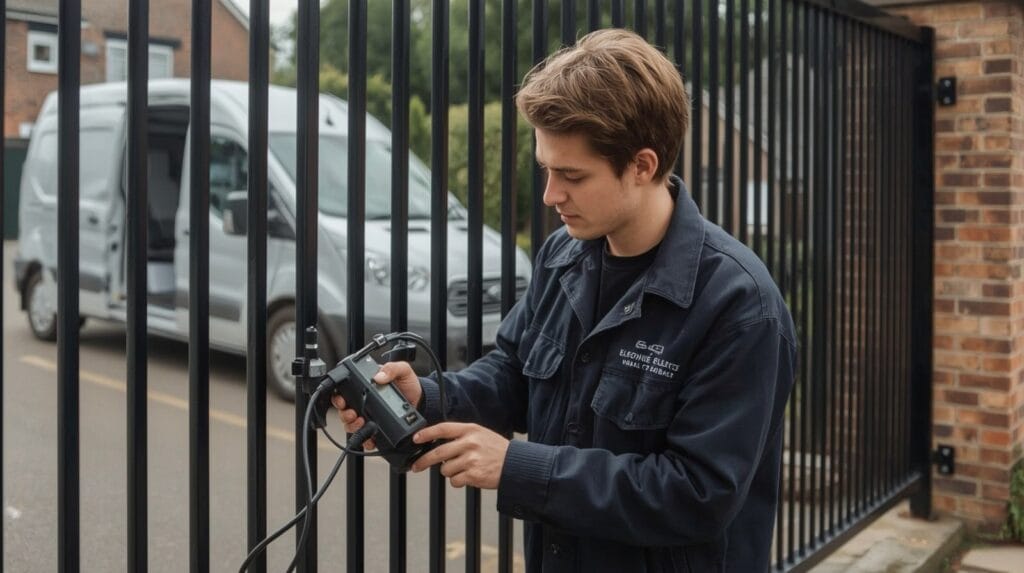
While your regular, diligent checks are incredibly helpful for identifying surface-level issues and maintaining basic cleanliness, it’s crucial to understand that there are critical elements of electric gate maintenance that inherently require professional expertise and specialised equipment. These aren’t tasks for the untrained hand; they delve into the intricate electrical systems, complex mechanical components, and precise safety calibrations that are fundamental to your gate’s safe and compliant operation. Only qualified technicians possess the in-depth knowledge and access to the necessary tools—like calibrated force testers or advanced diagnostic equipment—to ensure thoroughness, adherence to strict UK safety regulations, and long-term reliability for your sophisticated gate automation maintenance system.
- Annual Professional Servicing Minimum: We strongly recommend an annual service by a qualified engineer. For high-usage gates e.g., commercial properties, apartment blocks or gates exposed to harsh weather, semi-annual or quarterly servicing may be necessary. This proactive approach is a cornerstone of effective gate automation maintenance.
- What a Professional Service Includes:
- Force Testing: Crucially, engineers use calibrated force testers to ensure the gate’s operating forces comply with the strict EN 12453 safety standard. This highly technical test cannot be performed accurately by eye and is vital for safe operation.
- Electrical System Inspection: Thorough check of all wiring, connections, the control board, and the motor for wear, corrosion, or faults. Ensuring compliance with IET Wiring Regulations BS 7671 is paramount.
- Detailed Mechanical Inspection: Comprehensive check of hinges, rollers, tracks, and structural integrity for wear, damage, or misalignment that could impact performance.
- Safety Feature Testing: Verifying the full functionality of photocells, safety edges, and emergency stop buttons to guarantee their life-saving capabilities.
- System Calibration: Precise adjustments and re-calibration of motor limits, speed, and other settings for smooth, quiet, and efficient operation.
- Lubrication and Adjustment: Expert application of specific lubricants to all moving parts and precise adjustments that significantly prolong component life.
- Software Updates: Ensuring your control system has the latest firmware for optimal functionality, compatibility, and security, a key part of 2025 electric gate maintenance guide best practices.
- Risk Assessment Review: Professionals continuously assess and mitigate risks on site, ensuring your gate adheres to the highest safety standards.
- Addressing Specific Problems: If you notice any of the following, do not attempt to fix it yourself, and contact us immediately for professional electric gate maintenance:
- Gate not responding to controls or operating intermittently.
- Gate making loud or unusual noises during operation.
- Gate stalling or reversing unexpectedly without an obvious obstruction.
- Safety features like photocells not working correctly when tested.
- Visible damage to the motor, control box, or structural components of the gate.
- Any electrical issues e.g., flickering lights, burning smell, or tripped circuit breakers.
- The gate is visibly misaligned, sagging, or dragging on the ground or posts.
Investing in Longevity and Peace of Mind with Professional Electric Gate Maintenance

Ultimately, engaging in regular, professional electric gate maintenance is not just about safeguarding your initial investment and extending its operational life; it’s fundamentally about ensuring the paramount safety of your family, visitors, and entire property. By diligently combining your routine visual checks and basic upkeep with the expert, in-depth annual servicing from UK Electric Gate Experts, as comprehensively outlined in this 2025 gate automation maintenance guide, you create a robust safeguard. This ensures your automatic driveway gate maintenance is proactive, keeping your entrance not only a secure and reliable barrier but also a beautifully elegant feature of your home for many years to come. This intelligent, forward-thinking approach is undeniably the smartest and most responsible way to manage your gate’s long-term health, performance, and overall peace of mind.
Ready to ensure your electric gate is performing at its best and remains fully compliant? Contact UK Electric Gate Experts today to schedule your professional maintenance service!

